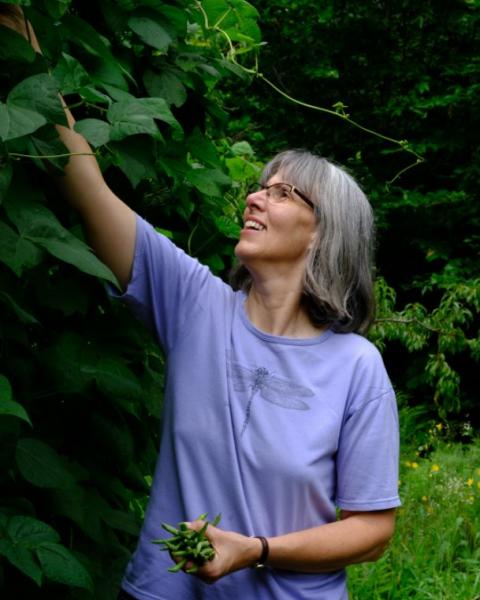Germination
4-10 days
Planting
Direct sow 3 seeds 1/4-1/2” deep in mounds 12-18" apart, keeping rows 5-6' apart. Thin seedlings to the healthiest plant. Soil should be moderately rich, well-drained and neutral to slightly acidic (pH 6.0-7.5). Keep the soil consistently moist, but avoid wetting the leaves. Plentiful heat is required for good fruit development. The vines need ample space.
Harvesting
75-90 days to harvest. Mid-season, the fruit is nearly black, lobed, and glossy. When ripe, the skin becomes orange with green mottling, the aroma increases and the tendril closest to the stem dries. The melon will come off the vine easily when pulled. Harvest promptly to avoid splitting. Not suitable for storage.
Description
Noir des Carmes melon is a true cantaloupe, not the muskmelon typically seen in supermarkets. It is easy to grow and has sweet, aromatic, orange flesh that is best eaten when ripe. Melons produce both male and female flowers. Male flowers start blooming before female flowers, so it takes some time for fruit to set. Bees pollinate the flowers by moving pollen from the male flower to the female flower.
Profile
Growing Habit: Vine
Sun: Full sun (minimum 6 hours)
Fruit: Size 2-3 lbs.
Connection to Extension
Noir des Carmes Melon is one of the seeds offered by Strawbery Banke Museum through our free seed for education program.
This planting guide was created through partnership among Strawbery Banke Museum, New Hampshire School & Youth Garden Network, New Hampshire Master Gardener Alumni Association and UNH Extension Master Gardeners.
